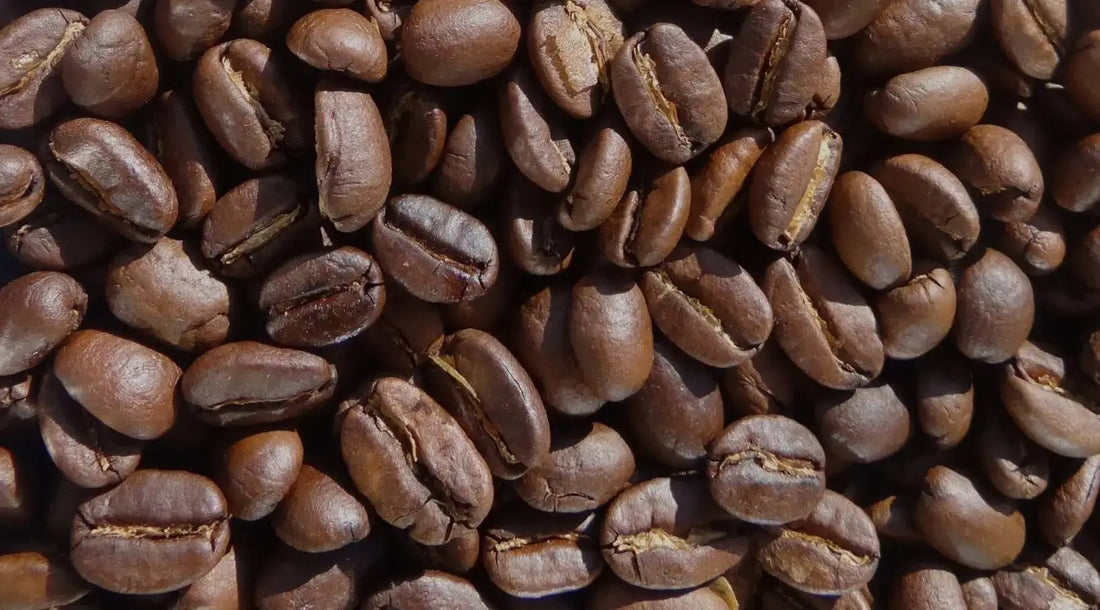
Storing coffee: How to keep coffee fresh for a long time
Adiam EngedaShare
The taste of your cup of coffee is influenced by a variety of factors, including the quality of the bean, the place of origin and the roast. Roasted coffee loses its flavor and aromas over time and eventually becomes stale and bland. All nuances and complexity of the flavor profile will fade over time.
The best cup of coffee comes from using high-quality coffee beans and storing them properly to preserve freshness. Storing the beans is an essential part of making good coffee. In extreme cases, incorrect storage can not only destroy the taste of the coffee, but also spoil the beans. So what is the best way to store coffee beans? When do coffee beans lose their aroma? What should you consider when storing coffee beans? How long do coffee beans last? And what should you pay attention to when buying coffee? Let's take a look at the factors that affect coffee freshness and the proper techniques for storing coffee beans.
Table of contents
- Storing coffee beans: What factors affect the freshness of the coffee?
- Store coffee beans properly
- 1. Store coffee beans in a cool, dry and dark place in an airtight container.
- 2. How to store - as a whole bean or ground?
- 3. Buy the right quantity
- 4. What you should pay attention to when buying: Coffee bag with aroma valve and roasting date
- 5. Coffee in the fridge - Should coffee be stored in the fridge?
- Can I freeze coffee?
- How long does coffee last?
- Storing coffee beans correctly: our tips for keeping coffee beans fresher for longer are summarized again
Storing coffee beans: What factors affect the freshness of the coffee?
During the roasting process, coffee undergoes a series of irreversible chemical and physical changes. Among other things, he develops volatile soluble compounds that are responsible for the aromas in our cup.
There are a number of factors that affect the freshness of coffee after roasting. According to the National Coffee Association, coffee beans' greatest enemies are air/oxygen, moisture, heat and light, all of which destroy the taste and aroma of coffee beans. External odors are another factor that has a negative effect on coffee beans. Coffee is porous and absorbs external smells and tastes in its environment.
oxygen
Oxygen is probably the most important factor. Coffee beans contain oils, chemical compounds and acids. These compounds are called "soluble components" and give coffee its flavor. Once coffee beans are exposed to oxygen during storage, the flavor and aroma begin to diminish as these compounds begin to oxidize. This causes the coffee to become stale, resulting in an unpleasant aftertaste.
humidity
Coffee beans are highly absorbent, meaning moisture and odors pose a further threat to the delicate taste of your coffee. In addition, moist and wet environments are an ideal breeding ground for microbes. For this reason, coffee that is exposed to moisture loses its flavor and runs the risk of brewing the coffee with moldy beans.
Light
Direct light , including artificial light, initiates a process called photodegradation , which essentially breaks down the organic compounds in the beans. Light also speeds up the oxidation process, breaking down the oils in the beans that provide flavor. For these reasons, it is advisable to store the coffee in a dark place, for example in a cupboard.
heat
The same goes for heat - leaving coffee beans in a warm place for a long period of time will accelerate the deterioration of the beans. Heat accelerates chemical reactions. For every 10 degree Celsius increase in temperature, chemical reactions such as oxidation occur twice as fast. So if you store your beans in a warm area of your kitchen (e.g. over the stove), the storage time will be significantly reduced.
Foreign smells
Coffee is porous and absorbs foreign odors very easily. So if you keep your coffee in the spice cabinet, you risk getting annoying. Not to mention using a plastic container with a strong smell of its own to store coffee. In other words, you should always store coffee beans as far away as possible from anything that gives off smell.
Store coffee beans properly
Despite all the things that can cause your coffee to go stale and lose its flavor, there are some things you can do to maximize the freshness of your beans.
1. Store coffee beans in a cool, dry and dark place in an airtight container.
As explained above, your beans' biggest enemies are air, moisture, heat and light.
To preserve the flavor of your coffee beans for as long as possible, store them in an opaque, airtight container at room temperature. Avoid transparent containers such as glass as the light can affect the taste of your coffee.
Store your beans in a dark and cool place. For example, areas near the oven are often too warm.
If the original packaging is not airtight, it is not ideal for long-term storage. If possible, you should transfer the coffee beans to an airtight container. Here at EastAfro Coffee, we use an airtight and resealable coffee bag with an aroma valve that is suitable for storage.
When it's time to store the coffee until the next brew, don't just seal the bag: roll it up tightly to remove the air from inside.
2. How to store - as a whole bean or ground?
When you grind the coffee, you increase its total surface area, which speeds up the oxidation process. While coffee beans retain their aroma for a few weeks after roasting, ground coffee quickly loses its flavor. Think of coffee like an apple: once you grind it, the oxygen begins to remove the flavors. That's why it's important to store coffee as whole beans and only grind it shortly before brewing.

3. Buy the right quantity
Almost immediately after roasting, the coffee loses its freshness. Therefore, regularly buy freshly roasted coffee that lasts four to six weeks. Buying coffee in advance may seem cost-effective, but if stored for a long time you will end up with stale beans. Use your coffee beans within four to six weeks of opening and pre-ground coffee within two weeks. Otherwise, much of the flavor will be lost.
4. What you should pay attention to when buying: Coffee bag with aroma valve and roasting date
The packaging of your coffee should have an aroma valve and the roast date. The valve allows the coffee's gases to escape without letting in oxygen. The roast date tells you how fresh your roasted coffee really is.
Why is an aroma valve important?

Roasted coffee beans release carbon dioxide (CO2) in the first few days after roasting, so the coffee should degas a few days after roasting. The aroma valve allows the CO2 to escape but prevents air from entering the coffee beans. Therefore, the packaging should be airtight and light-tight. If you've taken a closer look at our bags, you've probably noticed the valve. The degassing valve is an essential part of maintaining the freshness of the coffee.
5. Coffee in the fridge - Should coffee be stored in the fridge?
Although coffee should be stored in a cool, dry and dark place, the refrigerator is still detrimental to the aroma of the coffee. Coffee is an odor magnet and is therefore very susceptible to absorbing odors. Since the refrigerator is a source of foreign odors, coffee should not be stored there.
In addition, the temperature difference is another reason to avoid storing in the refrigerator: the temperature inside is significantly colder than the outside temperature. Every time you take the coffee container out of the fridge and open it, moisture gets in, soaking the coffee. Additionally, if you open the container while it is cold, condensation will form, which will also significantly affect the taste. Moisture and condensation can also promote mold growth on roasted coffee beans. For these reasons we advise against it.
Can I freeze coffee?
While there are differing views on whether or not coffee should be frozen, the most important consideration is that coffee absorbs moisture and odors. If you don't use an airtight container, your beans may suffer from freezer burn. Therefore, it is best to avoid this type of storage. But if you really need to freeze your beans, follow our tips:
- Find an airtight container. Make sure you use a truly airtight container. Original coffee bags are not recommended because of the "degassing valve".
- Divide the coffee into small batches. Just enough coffee should be taken out so that it lasts about 5 days without disturbing the remaining batches.
- Do not open the coffee immediately after removing it from the freezer. If you open the coffee beans while they are still frozen, condensation will form. Make sure the beans stay in the sealed container until they reach room temperature.
How long does coffee last?
How long roasted coffee lasts depends on several factors, including the roasting profile, variety, roast date and storage of the beans. You can also store coffee unopened for up to a year and then brew it without any negative health effects. The question is not whether it is still drinkable, but whether it still tastes good.
Whole coffee beans
A sealed package of roasted coffee beans that has not been opened and stored at room temperature away from heat, moisture and light should remain usable for up to one year. Once a package is opened, the beans will stay fresh for up to six weeks.

Ground coffee
Freshly ground coffee is more delicate and loses its aroma more quickly. Since the surface area of the powder particles is much larger than that of whole coffee beans, the oxidation of the oils and fats contained in the coffee powder occurs more quickly. After opening a package, the loss of taste is clearly noticeable after one to two weeks.

Storing coffee beans correctly: our tips for keeping coffee beans fresher for longer are summarized again
- Protect the coffee beans from air, moisture, heat, light and foreign odors.
- Buy coffee in quantities that you will use in the foreseeable future: beans within six weeks of roasting and ground coffee within two weeks.
- Pay attention to degassing valves on the coffee packaging. This is standard here at EastAfro Coffee. Degassing valves are one-way valves that allow roasted coffee to degas without oxygen entering.
- Grind your coffee beans yourself right before brewing for optimal flavor and only grind as much as you need.
- Avoid storing in glass or other transparent containers. Use an opaque and airtight coffee container. Think about the effect of light on coffee beans.
- Store coffee in the fridge? No! Coffee is an odor magnet and absorbs many other smells in the refrigerator. Moisture and condensation are further problems.
- Freezing is not considered an ideal method to preserve quality and flavor, but if you really must freeze your coffee beans, follow our recommendation.
